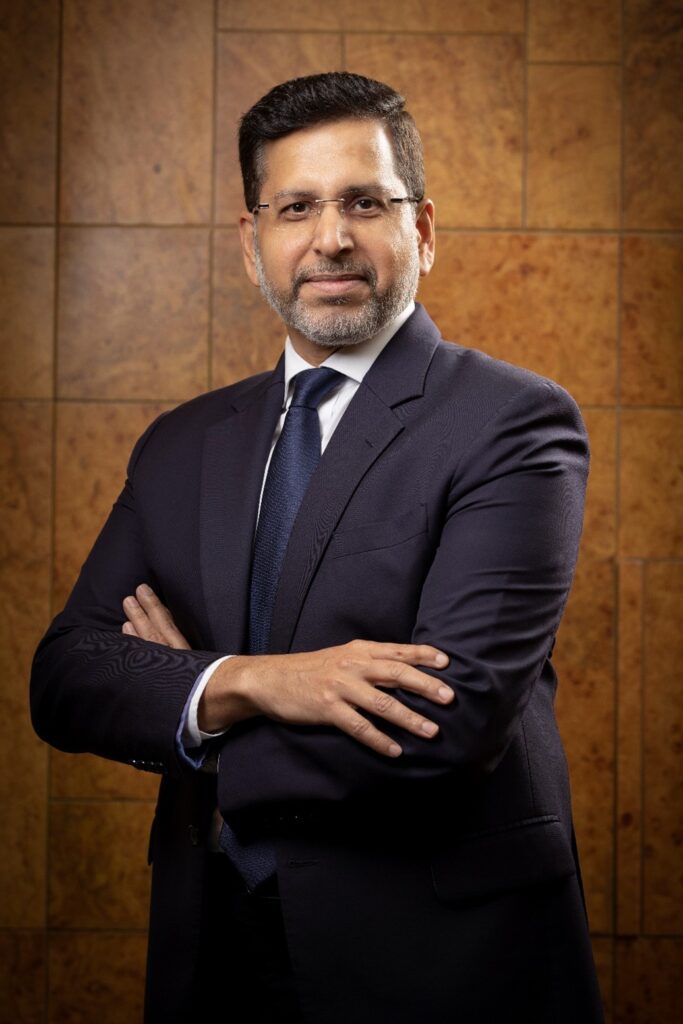Thomson Reuters is highlighting interviews with distinguished Chief Financial Officers (CFOs) for a series aimed at tax compliance and finance leaders. Kailash Sadangi, the Group CFO for Al-Othman Holding, generously shares the strategies underpinning his leadership.
Al Othman Holding is a family-owned, closed joint stock company in the Kingdom of Saudi Arabia founded in 1967. The company manages a diverse portfolio and has a strong presence in numerous sectors.
As the Group CFO, Kailash’s role spans investments, both in operating companies as well as investments in non-operating companies. A day in the role includes financial strategy and planning, accounting, tax, risk management, information technology, and of course, managing the group treasury.
Kailash is also spearheading digital transformation (DX) for the group. His aspirations for DX are more ambitious than many of his peers across the Asia and emerging markets region. Nearly three in five decision makers (59%*) participating in a recent survey are satisfied with operations working ‘just enough to be compliant and maintain company reputation’.
Conversely, only about one in three decision makers (32%**) want their department to be as automated and centralized as possible. Kailash sits in this camp, and you can learn much more about his rationale in the interview below.
“It is all about timeliness and accuracy”
Q: Can you tell us about how your department uses technology and the role you have had in shaping that?
A: “Our technology deployment is strategic and aligned with the group strategy. We allocate our investments and resources, and we make sure that we do not do everything in one go. We just phase it properly so that we can execute them and implement them in the right manner.”
Q: What best practices does your department follow to meet compliance requirements?
A: “It is all about timeliness and accuracy. We make sure that all the compliance, regulatory compliance is coming in. I have a group tax department which takes care of all the compliance with new and existing regulations. We make sure that we are on top of the game, and we have technology deployment in all our systems.
In Saudi Arabia we have both Direct and Indirect tax, guided by the ZATCA (Zakat, Tax and Customs Authority), comprising of Income tax, Zakat, value-added tax, withholding tax and excise duty for certain food and beverages. We have subject matter experts who take care of all these things, and we constantly maneuver compliance in a hybrid mode.
We use digital systems and make some calculations offline. We then upload these into the ZATCA portal. So, it is a combination of both automation and manual work.”

When to say ‘no’ to a tax tech investment
Q: Have you had to say ‘no’ to a tax technology idea or proposal, or say ‘yes’ to a big one? What was the reason behind your decision?
A: “It is always a joint decision. As a group, we believe in investing in technology. Having said that, we do have to invest in a systematic manner. We calculate the ROI (return on investment) for every investment and take a collective decision.
At the beginning of the year, we set up our budgets and stick to them. Let us say we plan to have ten projects during the year in various technology fields and specific platforms. We stick to it, and we aim to deliver them within the budget.
If there is a big regulatory demand, we must do it. For example, we are undertaking an e-invoicing project right now, which is a mandatory requirement. So, we cannot say no, irrespective of whether we have a budget for it.”
Global minimum corporate tax and transfer pricing
Q: Has the global push for tax transparency accelerated your organization’s digital transformation strategy? Why or why not?
A: “Yes, a lot of things are on the horizon. The Kingdom of Saudi Arabia is part of the G20. In future, the region will face global minimum tax requirements. Such changes will demand a lot of compliance.
Transfer pricing is another trigger for digital transformation. This involves country-by-country filing and then calculating the transfer price between companies outside and Saudi Arabia. Earlier, it was applicable to entities who are subjected to income tax, which means mostly foreign companies. Now even Saudi and zakat-paying companies will be subjected to transfer prices.
What it means is, a lot more compliance and a lot more disclosure. This will effectively push for more technology, and more efficient technology to deliver reporting in a timely and accurate manner.”
Global push for tax transparency
Q: Has increased data analysis and reporting enabled you to be more transparent and collaborate with regulators in recent years? Or if not, how do you engage with the regulators currently?
A: “Tech and compliance has enabled companies to be more transparent and report their data in a timely manner. Stakeholders of the company and larger audiences are making use of this data… There are some inherent risks (related to data privacy and protection), but the benefits far outweigh the risks.
The objective of our digital transformation has many folds. One is digitizing our supply chain, improving our employee productivity and overall value creation in the entire value chain.
When you have a digitally driven supply and demand chain, and more productive employees, you can report in a timely manner. You can cut down from 10-15 days (about 2 weeks) of closing time to 3-4 days closing time! All these things have enormous potential.”
DX opportunities and talent
Q: What opportunities are you looking to seize for your organization in 2023 and why?
A: “Embracing full digital transformation. I want to cut down on as many manual processes as possible. End-to-end business performance of every entity that is reporting to me, and making sure that the group is solid. My ambition is to get the entire organization digitally trailblazing, and I am confident we will get there.”
Q: Is there a relationship between tax technology and attracting and retaining talent at your organization? Does it play a key role?
A: Yes, in the Kingdom of Saudi Arabia, there is a lot of demand for talent. In a nutshell, there is a shortage. We are trying our utmost to retain the best talent possible, scout for the best and retain the best talent.”
* Based on 257 ‘decision makers’ surveyed. See Macro Trends Driving Tech Adoption in Tax and Finance by Thomson Reuters.
** Based on 257 ‘decision makers’ surveyed. See Macro Trends Driving Tech Adoption in Tax and Finance by Thomson Reuters.
Note to reader: We have edited some responses for conciseness and clarity with approval from the interviewee.
The inaugural Digital Transformation in Tax Compliance and Statutory Reporting 2023 Survey Report by Thomson Reuters reveals insights from 650 professionals. Read part one on Business Insight.



